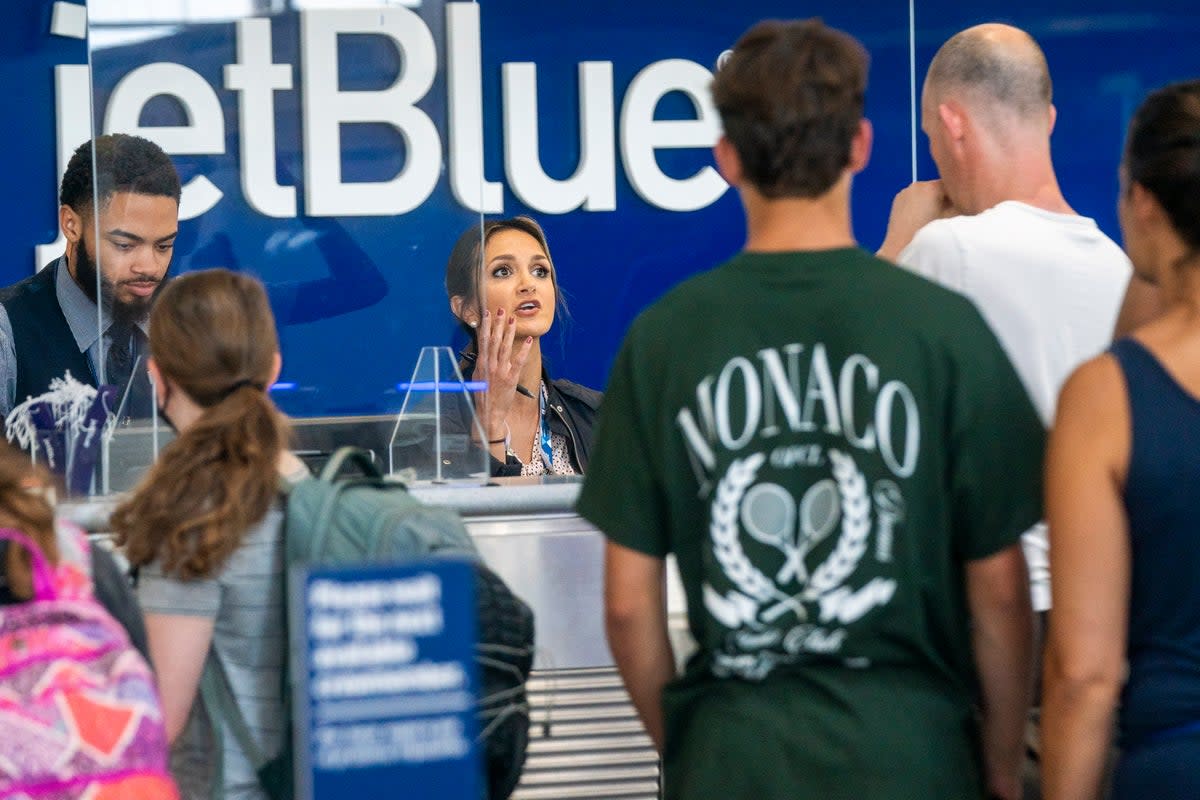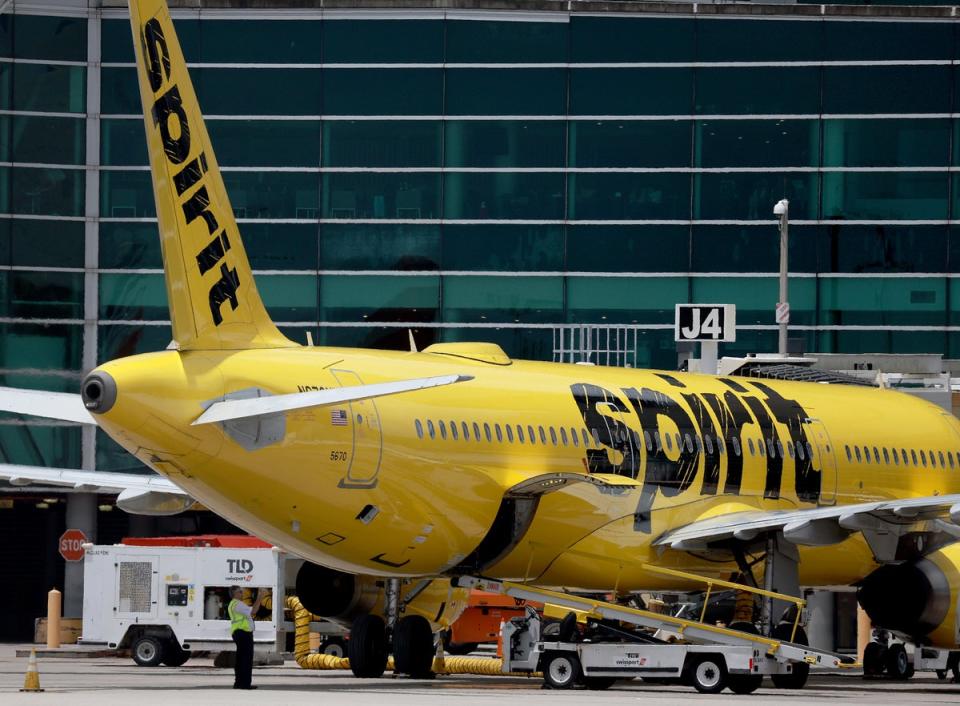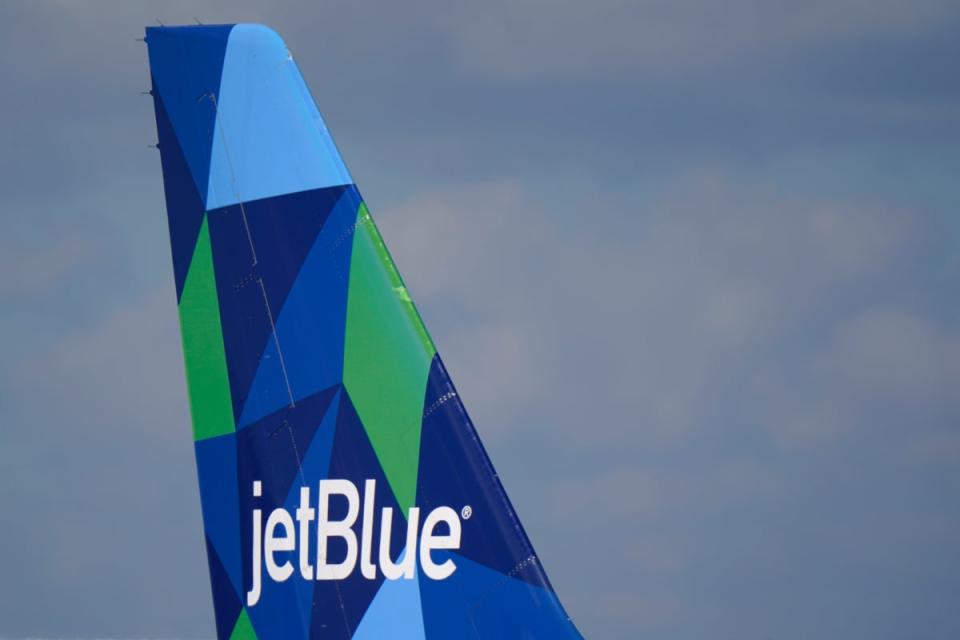JetBlue buys Spirit for $3.8 billion to become fifth-biggest US airline

American carrier JetBlue has secured a deal to buy ultra-low-cost Spirit Airlines for $3.8 billion (£3.14bn) in a deal that would create the fifth-largest airline in the US – if it is cleared by regulators.
The agreement comes a day after Spirit's attempt to merge with budget rival Frontier Airlines fell apart.
The proposed new combined airline would be based in New York and have a combined fleet of 458 aircraft.
However, it needs approval from a White House that has recently called for more competition in the airline industry.
Spirit had recommended its shareholders approve Frontier’s lower offer, saying that antitrust regulators are more likely to reject the JetBlue deal.
JetBlue, which recently began transatlantic services to London Heathrow in addition to expanding at London Gatwick, has built a reputation on its onboard experience, which includes a separate business-class-style cabin and comfortable seats, and codeshare deals with connecting carriers.
By contrast, Spirit has traded on its headline low fares while earning ancillary revenues from fees for everything from bags to seats on its yellow-and-black planes.
It is understood JetBlue sees the deal as a way of expanding its own network and product by acquiring existing aircraft and qualified crew amid an industry-wide recruitment crisis.

"This combination is an exciting opportunity to diversify and expand our network, add jobs and new possibilities for crewmembers, and expand our platform for profitable growth." JetBlue CEO Robin Hayes said in a statement.
JetBlue said Thursday that it would pay $33.50 per share in cash for Spirit, including a prepayment of $2.50 per share in cash payable once Spirit stockholders approve the transaction. There's also a ticking fee of 10 cents per month starting in January 2023 through closing.
If the transaction is completed before December 2023, the deal will be for $33.50 per share, increasing over time to up to $34.15 per share, in the event the transaction closes at the outside date in July 2024.
If the deal doesn't close due to antitrust reasons, JetBlue will pay Spirit a reverse break-up fee of $70 million and stockholders of Spirit a reverse break-up fee of $400 million less any amounts paid to stockholders of Spirit prior to termination.

News of the proposed merger comes after weeks of tussling between Frontier and JetBlue over who should buy Florida-based Spirit.
Spirit initially struck a deal with Denver-based Frontier but its management could not persuade shareholders who were attracted by JetBlue’s more lucrative cash offer.
JetBlue anticipates $600 million to $700 million in annual savings once the transaction is complete. Annual revenue for the combined company is anticipated to be about $11.9 billion, based on 2019 revenues.
JetBlue and Spirit will continue to operate independently until after the transaction closes. Their respective loyalty programs remain unchanged and customer accounts will not be affected in any way.
Frontier is *really* leaning in to the "America's ULCC" angle. Basically reminding the market that Spirit/JetBlue means Spirit stops being a ULCC and likely will have higher fares going forward.
— Seth Miller (@WandrMe) July 27, 2022
the companies expect to conclude the regulatory process and close the transaction no later than the first half of 2024.
Spirit's stock rose more than 4% before the market open, while shares of JetBlue were up slightly.
Frontier issued a statement saying it expected to continue to grow even without the merger by emphasising its own attracting customers with its very low fares.
Agreement Reached: JetBlue To Buy Spirit Airlines - View from the Wing https://t.co/fwqSyNPi07
— gary leff (@garyleff) July 28, 2022
“While we are disappointed that Spirit Airlines shareholders failed to recognize the value and consumer potential inherent in our proposed combination, the Frontier Board took a disciplined approach throughout the course of its negotiations with Spirit,” Frontier CEO William Franke said in a statement. “As we enter our next chapter, Frontier remains well-positioned to deliver significant value to our shareholders as we serve the growing demand for affordable air travel.”
It is the biggest merger deal since Seattle-based Alaska Airlines beat JetBlue in a bidding war for Virgin America in 2016.

